
 "Fallen is Babylon the Great . . . The Kings of the earth committed adultery with her." (Rev. 18:2-3)
"Fallen is Babylon the Great . . . The Kings of the earth committed adultery with her." (Rev. 18:2-3) in this issue Third Quarter 2003, Vol. 7 No. 3
- Feature: Counterfeit Apocalypse Grips Globe
- News: Time Magazine Exposes Tentmaking Strategies
- News: Shari'a Law Affects Christians in War-Torn Aceh, Indonesia
- Book Review: Terror and Liberalism Reveals Paradigm of Rebellion
- Book Review: Gracia Burnham Tells of Jihad in the Philippines
- Resource: Praying Through the Arabian Peninsula
- Resource: Study Guide Highlights Bible Themes
- Resource: Bible Download in 14 Languages
- Resource: Bibliographu of Books on Islam
- Opportunity: Urbana Missions Conference
- Profile: Spiritual Landscape of Liberia
- Feedback: Response on Spiritual Warfare
Feature:
Counterfeit Apocalypse Grips Globe
by Dr. Bruce Sidebotham
War on terrorism is more than a military conflict. Dead women, children and U.S. soldiers are tragic symptoms of a great underlying ideological struggle. This struggle was apparent in many subtle ways long before 9-11. Paul Berman in his book Terror and Liberalism points out how much this war resembles the apocalypse recorded in the book of Revelation.
Gazing into the future, the Apostle John sees that the people of God will be oppressed by enemies without (the Antichrist and his political machine) and seduced by enemies within (the abominations of Babylon). After a time of tribulation the Messiah appears, and Armageddon begins. The Messiah defeats his enemies and establishes a 1000 year reign known as "the Millennium."
For Berman, this is the ur-myth cyclically told and enacted throughout history. Renditions of this myth always feature the following elements (pp. 48-51).

1) A people of God, whose peaceful and wholesome life had been undermined2) Subversive neighbors within, who are aided and abetted by Satanic enemies without
3) A coming pure and perfect reign, in a society cleansed of all pollutants and abominations
4) The bloodbath the war of Armageddon, which precedes society's perfection
And why not? The enemy of our souls who deceives millions with imitation plans of redemption also provides followers with a counterfeit of Armageddon in which blood can justifiably flow at apocalyptic levels. The French revolution pitted peasants against aristocrats. Marxism set proletariat against bourgeois. German fascism matched the "super race" against its inferiors. The cultural revolution in China inspired loyal communists against capitalists.
Each rendition of Armageddon also features its own messiah a chairman, a fuhrer, a god endowed with legitimacy by history as interpreted by his cult. Rites, symbols, colors, chanting, absurd doctrines, personal sacrifice, and widespread death characterize these movements. The leader answers to no one. He stands above human moral standards. Life and death are just instruments in his hands.
Today's rendition of the counterfeit apocalypse courts allegiance from the Muslim fifth of the world's population. It seeks sympathy from the majority in nearly fifty countries and from a potent minority in nearly all others. From the standpoint that previous "world wars" were fought mostly in the industrialized world, today's struggle is truly global. Today's ur-myth believers who perceive that they are God's chosen and oppressed people are the fundamentalist Muslims. Though few in number among many moderates, they perceive themselves to be the only "true Muslims." They are the ones uncorrupted by modernity the enemy within. They are the ones withstanding the "Great Satan," the enemy without. And leaders in this movement are the ones meting out life and death with callous abandon to usher in a new "golden age" of human existence.
In the real apocalypse at the real Armageddon, God's people on earth do not fight, but passively observe as their deliverer miraculously defeats his enemies and establishes a genuine just peace. In all the imitations to date, despite imaginative programs and good intentions, utopia remains out of reach. Berman observes, "Death was the only revolutionary achievement that could actually be delivered" (p. 51).
Al Qaida's dream to reestablish the ideal Islamic society as it existed in the days of Muhammad will be just as elusive. Peace and unity of all people throughout the world under the rule of Shari'a law may be out of reach, but mass death is not. Death we can do. Utopia we cannot. In the Armageddon paradigm, social death precedes social resurrection. Islamicists will do what they can and trust God for the rest. This is bad news. The good news is that, like every other attempt to perfect society, this too will pass.
News:
Time Magazine Exposes Tentmaking Strategies
by David English of Global Opportunities
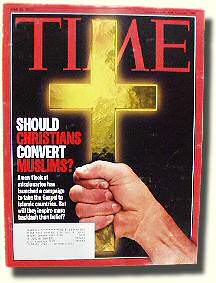 Time magazine has raised the profile of Global Opportunities (GO) by quoting Dave English in the cover article for June 30th "Should Christians Convert Muslims?"
Time magazine has raised the profile of Global Opportunities (GO) by quoting Dave English in the cover article for June 30th "Should Christians Convert Muslims?"
How did this happen? David Van Biema of Time magazine attended one of our seminars to learn about tentmaking. I am very thankful because he learned of Christians doing tentmaking with full integrity rather than undercover.
Though many feared the worst, David Van Biema has written an excellent article-well researched, fair, accurate, and even gracious at points. While not a Christian, he demonstrates a very good grasp of Christian missions thinking, motives, and development. Numerous Christian leaders have acknowledged it is a good article. Ralph Winter called it "surprisingly accurate and fair-almost friendly."
Major insights
Christians consider the gospel their "most precious gift." (It is! Incredibly, God loves all humans even though they have rebelled against his absolute claim upon them, and offers them full pardon. In fact, he loves us so much he has provided the only just way of reconciling by giving his own Son to die in our place. Further, he brings us into intimate relationship with himself through faith, not merit (Rm. 4:24-5:1). And he supernaturally changes us by his Spirit so that we are able to love and serve him. All of this he does if we will only surrender unconditionally and trust him. Christians cannot believe such news and remain silent.)
"Many [Christians] show exquisite sensitivity, sharing their Lord only with people whose intimate friendships they have earned." While open about their faith, they do not press it on others, but share Christ on their friends' terms. Some people accept this message as the result of street evangelism, but most need to watch the message in action and process it before making a decision.
Christians have delivered "sometimes heroic humanitarian efforts" and have been "in the forefront" of all kinds of development despite any objections of using aid as a "cover" for proselytizing. (In fact, throughout the Church's 2000 years, Christians have led in all kinds of human compassion, rescuing abandoned infants, burying the dead during the black plague, starting hospitals . . .)
Since the late 70's missions has shifted focus from Latin America and Africa to "unreached people groups" roughly concentrated in the "10/40 Window" between the 10th and 40th latitudes, including the Muslim Megapeople. Christians realized that one-third of the world had never had a chance to hear the great news of Jesus.
Among religions, "Islam is the most ferociously opposed to the straying of its flock." Shari'a law, though not binding, calls for the death penalty for those who leave Islam and persecution is common. Some have been killed by fundamentalists or family members. Christians want something better for people who have so little freedom of thought, speech, or assembly.
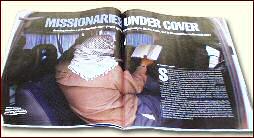
Major issues
Is it legitimate to stretch the truth with "unnerving ethical elasticity," even "lying about [one's] identity" to gain visas to countries which exclude religious workers? Nowhere does the Bible require cross-cultural witnesses to be supported or to be members of a missionary agency. Such ethical compromises undermine the trust of the local people, as well as sacrifice long-term progress for short-term gains. There are good alternatives.
How far can Christians go in contextualizing the gospel before it becomes deceitful camouflage? Can they present their faith as a kind of Islam, invite Muslims to "Jesus mosques," and publicly recite the Muslim creed? On the other hand, it is inappropriate to pull Muslims out of their context and community into Western ones. The issue is Jesus.
Are some Christians guilty f religious arrogance combined with political ignorance in spreading their faith? Sadly, anyone who has watched knows that there is some truth to this charge. Do they stir up reaction, alienate authorities, sacrifice the long-term for short-term, and hurt their cause by overly pushy, illegal activity? Is not natural, relationship-based sharing much more appropriate and effective?
These are legitimate issues currently being discussed within the Church. Van Biema raises them with remarkable grace at numerous points. He has listened closely and carefully. We ought to do the same.
Let us thank God for this article. It could have been very destructive. David Van Biema and his whole team are to be commended. But let's also pray for God to protect and empower Muslim-background believers and tentmakers (we've heard of two being negatively impacted already), to give Muslim leaders wisdom and desire for justice, and for Muslims who read the article to see the value of Christian professionals who work with integrity.
This article underscores how crucial Global Opportunities' work is. GO constantly advocates and trains Christians to practice full integrity in tentmaking, to integrate work and witness, to reach their natural network, and to do effective relational evangelism. Many more tentmakers are needed. GO must grow to meet the need.
We invite you to join us through going, giving, and praying.
News:
Shari'a Law Affects Christians in War-Torn Aceh, Indonesia
by Samuel Rionaldo, COMPASS DIRECT
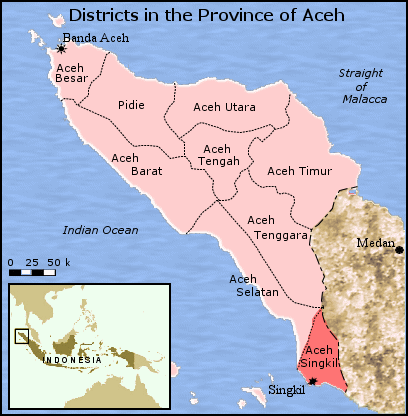
Christians in the province of Aceh in northern Indonesia have faced huge challenges since the adoption of shari'a law on March 4. With the outbreak of civil war, the pressure has risen to new levels, prompting thousands of Christians to flee the troubled province.
Government troops marched into Aceh on May 19 after the breakdown of talks between president Megawati Sukarnoputri and the Free Aceh Movement (GAM). For 27 years, the GAM has fought for independence in a private war that has claimed more than 12,000 lives.
Christians in Aceh were already suffering under shari'a, a form of Islamic law that takes precedence over state law in many cases. When the law was first introduced last March, Muslim clerics declared shari'a would only affect the Muslim population. In practice, however, the law has brought many new restrictions to Aceh's Christian community.
Civil authorities in Aceh have limited the activity of churches. In many areas, Christian worship is forbidden. Pastors and Catholic priests are banned from entering the province, leading some Catholic priests to disguise themselves as tradesmen in order to visit their parish members.
Christians also report a campaign of intimidation by Muslim clerics and neighbors. Hundreds have been pressured to re-convert to Islam; an unknown number have renounced their faith. Whenever a Christian re-converts, the event is declared through loudspeakers at the local mosque or in local newspapers.
The number of Christians in Aceh is around 200,000 in a population of 4.2 million. However, numbers have steadily declined over the past few years as restrictions on Christian activity have increased. In recent years, for example, churches in Aceh have been compelled to celebrate Christmas and New Years in a single location.
Church closures are also increasing. In Aceh Singkil, only five churches remain from an original total of 22.
Rev. Sihotang from the Indonesian Christian Church says 13 Protestant and four Catholic churches have been closed in Aceh Singkil. "The Christians from these churches have been forbidden to worship at home, in another building or in open tents," said Sihotang. "Moreover, we are forbidden to use Christian ceremonies when taking a dead body to the cemetery."
Rev. Tumanggor, pastor of the Pakpak Dairi Protestant Church, confirmed these reports. According to Tumanggor, Muslims feel threatened by the growth of Christianity in this district. Acting at the behest of Muslim authorities, the local government announced that five churches were enough to meet the needs of the Christian community.
Leaders of churches in Aceh Singkil were asked to sign a letter of agreement on the church closures. Meanwhile, five churches continue to operate in some of the sub-districts.
Rev. Hutman Sianturi, an evangelist in southeast Aceh, said pressure on Christians has increased since the implementation of shari'a law. In his opinion, the Muslim community is clearly pressing for Christian conversion back to the faith of Islam.
"Many young Christian men are looking for wives," Sianturi added. "But there are not many Christian young women here. So if they want to marry Aceh girls, they have to change their religion."
Under shari'a law, Muslims are required to attend prayers at the mosque and wear full Muslim dress while in public. In shari'a courts, the evidence of non-Muslims and women is worth only half that of Muslim men.
Shari'a law allows for harsh penalties, including the amputation of hands and feet in the case of theft. Even more serious is the matter of conversion from Islam, which is defined as "apostasy," a sin punishable by death.
Muslims in Aceh now regard Christians with suspicion, making communication with former neighbors and friends difficult. The outbreak of civil war has further isolated the Christian community. Minority groups are held in suspicion by the Indonesian military, and many Christians are fleeing the area as refugees.
Rev. Sahabat Purba, pastor of a Protestant church, has seen a huge decrease in church attendance. "Our people don't come to worship anymore, in case they are stopped on the way," he explained. Police and military patrols conduct frequent identity checks, and Christians identified as such by their I.D. cards are often harshly treated.
Church leaders have tried to negotiate with key Muslim leaders and local government officials but have had little success so far.
The status of the church in Aceh has always been precarious. According to Rev. Sihotang, church building permits were rarely granted. Christians found it almost impossible to acquire Bibles, hymn books or other forms of Christian literature. These items were carried in by Christian friends and relatives and could not be distributed publicly in Aceh.
The explosion of war between Indonesia's military and the GAM has brought church worship and other activities almost to a standstill. "We are sure more Christians will move out of this province because of the war," said Sihotang.
"This is not just the problem of Christians in Aceh," he added. "Christians around the world must see this as their problem too."
Book Review:
Terror and Liberalism by Paul Berman
reviewed by Dr. Bruce Sidebotham
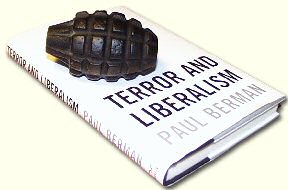
Paul Berman is a thorough secularist on the political left who does not follow the stampede of his associates who blame America for the war on terrorism. As a result, his book, Terror and Liberalism, is particularly insightful, unique, and objective. In fact, of all analyses of the war on terrorism that I have read so far, his book is the best.
Liberalism to Berman is not the antithesis of conservative family values, but is liberalism in the classic sense of the 19th century. It is freedom and democracy in opposition to what were then monarchies, and it is freedom to experiment, question, and doubt. Liberalism is decidedly Western in nature and origin, because skepticism and doubt have no place in Muslim civilization where "submission is the road to social justice" (p. 27).
Berman notes that within mankind resides an irresistible primordial urge to rebel. When liberalism holds sway, the "esteem accorded to skepticism and doubt" within it awakens this urge, so that liberalism itself leads naturally and consequentially to rebellion against it.
The ultimate rebellion against liberalism is totalitarianism, and the consummate totalitarianism is terrorism. In this rebellion based paradigm of terrorism, murder and suicide become honorable, because they are supreme expressions of human freedom (p. 29).
Hence, in resorting to terrorism to combat the "insidious penetration of cultural influences and ideas" from the West (p. 183), fundamentalist Muslims become slaves to the very Western influence that they claim to despise. In their methods, motives, and populist movements they recapitulate Hitler, Stalin, Mussolini and others who were themselves rebelling against liberalism in its classic sense.
Berman's exegesis of terrorism takes the reader on a journey of discovery through 19th century literature, recent history, and fundamentalist Muslim theological writings. He also sheds bright and critical light upon U.S. foreign policy, the Palestinian issue, and fellow intellectuals who cannot seem to see or face reality.
Everyone interested in foreign policy and current events should read this book.
Book Review:
Gracia Burnham Recounts Captivity in the Philippines
by DeAnn Alford, Compass Direct
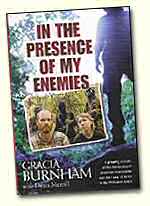 His family was Christian, he fell in love with a Christian girl and attended a Christian and Missionary Alliance church. Aldam Tilao had every chance to follow Christ.
His family was Christian, he fell in love with a Christian girl and attended a Christian and Missionary Alliance church. Aldam Tilao had every chance to follow Christ.
Instead, the Filipino embraced radical Islam, adopted the name Abu Sabaya and joined the Muslim terrorist group Abu Sayyaf. He became the flamboyant spokesman of the group whose trademark was beheading hostages and prisoners of war.
On 27 May 2001, Sabaya and fellow guerrillas wielding M-16s raided the Philippines resort of Dos Palmas where Martin and Gracia Burnham were celebrating their wedding anniversary. The terrorists took the couple and 15 other hostages. Days later, Abu Sayyaf took four more captives from a hospital.
Gracia Burnham recounts this saga, a story of despair, faith, hope and love, in her newly released book, In the Presence of My Enemies.
For 376 days, radical Muslims held the missionary couple hostage, providing them with insights into militant Islam and the hearts of some of its adherents.
Islamic fundamentalists have been a problem in the southern Philippines for at least six centuries. "There's always been fighting between the Christians and Muslims down there," Burnham said. "The Muslims claim they were the first ones there, so they're always fighting to retake their land. This isn't a new problem."
Sabaya's role in the terrorist group was to negotiate ransoms to finance the group's jihad. He often bragged that Abu Sayyaf was part of the network of Osama bin Laden a name that meant little to most Americans until 9-11.
Gracia said that some of her captors had gone to Europe and been taught by someone linked to the Al-Qaeda terrorist network.
In June 2001, Sabaya called Philippine President Gloria Macapagal-Arroyo by satellite phone to deliver Abu Sayyaf's demand of $1 million to release Martin Burnham, a veteran missionary pilot who had worked in the country for 15 years. If the president did not let Malaysian mediators talk to his group, he said, he would kill one of the "whites" Abu Sayyaf was holding. That meant Martin, Gracia, or fellow American hostage Guillermo Sobero.
Four days later, guerrillas uncuffed Sobero's wrist from Martin Burnham's, tied Sobero's hands with a rope and led him away. Days later, Philippine authorities found his beheaded body.
During the next year, the Abu Sayyaf released some hostages and beheaded others.
For more than a year, the Burnhams, members of the Florida-based New Tribes Mission, lived among the Muslim radicals. The missionary couple endured seventeen firefights between Abu Sayyaf and soldiers of the armed forces of the Philippines, including the final one on 7 June 2002, in which Martin was killed and Gracia wounded.
Gracia said that when the couple was kidnapped, "We thought, 'Oh, no, we're Christian missionaries. We're in big trouble.' And we were, but it wasn't because of our Christianity."
Since Muslims worship Allah as the one true God, the rebels took no issue with the Burnhams' work. That's because New Tribes Mission focuses on tribal animists who worship multiple spirits.
Conversations with Sabaya and another English-speaking guerrilla, Solaiman, often turned to religion.
"It's not like these guys didn't have any light," Gracia said. "[Sabaya] has heard the gospel over and over. He could quote John 3:16." Solaiman also had heard the gospel many times and could quote that key verse "with a sneer on his face."
A guerrilla named Ustedes Hail detailed Abu Sayyaf's vision for retaking the "Muslim homeland" from "Christian oppressors."
When Martin Burnham pressed him about what that entailed, the guerrilla named five islands.
And if the government were to cede those islands to the Abu Sayyaf, would that mark the end of the guerrillas' quest?
"Oh, no, no," Hail said. "That would be only the beginning." Hail named more islands the guerrillas planned to conquer, until they eventually took over the entire Philippines. After forcing the country to submit to Islam, the group would go after Thailand and other "oppressed countries."
"You see, Islam is for the whole world," he said.
The kidnappers pushed their hostages to convert. At least two women did, apparently because the guerrillas told them that if they became Muslims, they would be released.
To honor Ramadan in November 2001, the kidnappers freed one of the women, Sheila. Though initially promised freedom with Sheila, Filipina nurse Ediborah Yap was denied release at the last minute by an Abu Sayyaf leader. She died seven months later in the same firefight that killed Martin Burnham.
Sabaya told the Burnhams they were "war booty" and shared Quranic passages about their possible fates death, enslavement, conversion to Islam or taxation if they continued to practice their religion.
The captors often asked Martin if he was ready to convert to Islam. In her book, Gracia reports his astute reply: "Hmmm, well, you know, my father is a Christian. His father before him was a Christian. Going even further back, my family has always been Christian." For some reason, the Muslims respected the logic and dropped the subject.
The Abu Sayyaf guerrillas often fasted, prayed, read the Quran, took ritual baths and refused to eat pork. They made Gracia wear a head covering and avoided touching her. Yet they flaunted other Islamic rules.
For example, they considered the civilian armed forces, the "CAFGU," their greatest enemies. "If they were going into a town wanting to chop some heads, they would look for the CAFGU," Gracia said. "[To the Abu Sayyaf] anyone who had ever worked for the military was even more of an evil than a Christian."
So while the Abu Sayyaf claimed to be on a jihad, their rampage was not just about religion. "They're using their jihad to get their homeland back," Gracia Burnham said. "They would chop off a Muslim's head as quickly as they'd chop a Christian's."
Nevertheless, the Abu Sayyaf viewed Christians as enemies. "Something they told us right away was that they hate the cross because we (Christians) believe Jesus was God," Gracia said. "They say, 'Any time we see a cross anywhere, we destroy it.'" Once they pointed out a chapel that had no cross and said they had torn it down.
Although the guerrillas prided themselves on their ties to Al-Qaeda, the Burnhams never heard Arabic spoken, apart from the sing-song rote of the captors' reading of the Quran, which none of them could understand.
Only once, a few days after 9-11, did the Burnhams see anyone who was not Filipino. Two men, whom the Abu Sayyaf claimed Osama bin Laden had sent, joined the group for a few days. The two never spoke to Martin or Gracia, and their captors never told the Burnhams why the men had come.
"The FBI says they were there to tell them: 'Get out of this kidnapping-for-ransom business, because you're making us look bad,'" Gracia said.
Some of the hostages said the two strangers came to teach the Abu Sayyaf how to build bombs. When the men finally left, all the other people of importance in the group left as well.
Gracia said she realized why many of the Abu Sayyaf fighters joined the group. "I always felt very bad for them. Here they were, stuck in this religion, trying their hardest to get to heaven."
According to some Islamic teachers, those who die in jihad bypass a horrible judgment and go straight to paradise. "If you're trying to appease a God who requires so much of you, but you never measure up, what choice do you have if you truly want to go to heaven? Your choice is jihad, really," Burnham said.
"A lot of those guys were in the Abu Sayyaf because they didn't have jobs," she added. "They joined the Abu Sayyaf because there was a payoff."
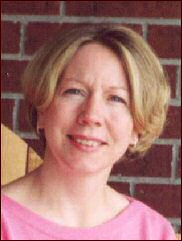 Gracia does not consider her husband a martyr, although "That's a nice thing to say about Martin," she said. The kidnapping was about one thing money.
Gracia does not consider her husband a martyr, although "That's a nice thing to say about Martin," she said. The kidnapping was about one thing money.
"We just were in the wrong place at the wrong time. We didn't give up our lives because of our faith. Granted, we were in the Philippines because we were missionaries, but there are people all over this world who believe and they're not going to turn their backs on what they believe. And that intrigues me.
"I think the person needs to do what God calls them to do. If God puts a passion in your heart to go reach the Muslim community, that's what you do. You don't look at the danger and weigh out the dangers, because if it's time for you to leave that village, God's going to make that clear, too."
She added, "I don't have a real good opinion of 'Should we go? Should we not go? Isn't it foolish to go?' Yeah, looking at it from the outside, it's pretty foolish. But God has called people to do very foolish things before. Even if he calls you to America to the concrete jungle, you need to do it."
Since her release, Gracia has created the Martin and Gracia Burnham Foundation, which seeks to support missionary aviation, tribal outreach, Muslim missions and persecuted Christians. The URL for the foundation's web site is www.graciaburnham.org .
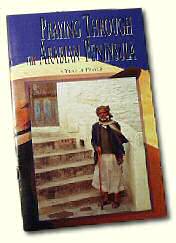
Resource:
Praying Through the Arabian Peninsula
National believers and Christian workers in the Arabian Peninsula invite you to pray with them using this tool. It is divided into twelve months with prayer and learning points for each day.
Order from:
Phone: 1-800-376-5876
web site: www.pray-ap.info
e-mail: PTAP@srginc.org

Resource:
Study Guide Highlights Bible Themes
This study guide creates an awareness of one of the most ignored themes of the Bible God's global purpose his desire and activity of redeeming mankind to himself.
This theme involves God's pursuit of worshipers from all the peoples of the earth.
This study will reveal how the themes of God's blessings and his global purpose are beautifully woven together in the Bible. Correctly interpreting and applying Scripture requires grasping the connection between these two themes.
Overlooking one leads to misinterpretation, errant application and misdirection.
Order from Caleb Project:
Resource:
Free Bible Download in 14 Languages
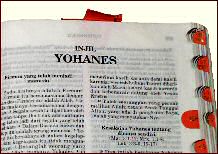
www.e-sword.net
Rick Meyers has developed a free Bible download service of forty translations in fourteen languages including English, Chinese, Russian, and Ukrainian.More than one million Bibles have been downloaded since Rick launched his site in 2001.
The King James Version that's available includes Strong's reference numbers which key each word in the text to dictionary references for the underlying Hebrew and Greek words.
The downloaded Scriptures can be put on a computer or on a palm handheld organizer. It includes a built in word processor to import text, add notes, highlight passages, and print.
Resources:
Bibliography of Books on Islam
Compiled by Roy Oksnevad, Muslim Ministry Department, Billy Graham Center, Wheaton, IL 60187
Descriptive
- Adeney, Miriam. Daughters of Islam. InterVarsity Press, 2002.
- Al-Masih, Abd. The Life of Muhammad: The Persecuted Prophet in Mecca, v 1. Villach, Austria: Light of Life, 1997.
- Anderson, Norman. Islam in the Modern World: A Christian Perspective. Leicester: Apollos. 1990.
- 'Abd al-Fadi, 'Abdallah. Is the Qur'an Infallible? Villach, Austria: Light of Life, n.d.
- Abdul-Haqq, Abdiyah Akbar. Sharing Your Faith with a Muslim. Bethany Fellowhsip, Inc., 1980.
- Braswell, George W. Jr. What You Need To Know About Islam and Muslims. Broadman and Holman Publishers, 2000.
- Braswell. Islam: Its Prophet, Peoples, Politics, and Power. Broadman and Holman Publishers, 1996.
- Cragg, Kenneth. The Call of the Minaret. Orbis Books, 1985.
- Chapman, Colin. Cross and Crescent: Responding to the Challenge of Islam. InterVarsity Press (IVP), 1995.
- Chapman. Islam and The West: Conflict, Co-Existence or Conversion Carlisle, UK: Paternoster Press, 1998.
- Cooper, Anne, ed. Ishmael My Brother: A Biblical Course on Islam. London: Evangelical Missionary Alliance, 1985.
- Dashti, Ali. 23 Years: A Study of the Prophetic Career of Mohammad. London: George Allen & Unwin 1985.
- Ellis, Carl. The Man Behind the X. Accord Publications, 1993.
- Hodgson, Marshall G.S. The Venture of Islam (3 Volumes). University of Chicago Press, 1974.
- Jabbour, Nabeel. The Rumbling Volcano: Islamic Fundamentalism in Egypt. Mandate Press, 1993.
- Mallouhi, Christine A. Waging Peace on Islam. IVP, 2000.
- McCurry, Don. Healing The Broken Family of Abraham: New Life for Muslims. Self published, 2001.
- Muller, Roland E. Muslim Friends: Their Faith and Feeling: An Introduction to Islam. Concordia Publishing House, 1995.
- Musk, Bill. The Unseen Face of Islam. East Sussex, Great Britain: Monarch Publications, 1989.
- Musk. Touching the Soul of Islam: Sharing the Gospel in Muslim Cultures. East Sussex, Great Britain: MARC, 1995.
- Musk. Passionate Believing: The 'Fundamentalist Face of Islam. Great Britain: Monarch Publications, 1992.
- Parshall, Phil. Inside the Community: Understanding Muslims Through Their Traditions. Baker Books, 1994.
- Parshall. Bridges to Islam: A Christian Perspective on Folk Islam. Baker Books, 1983.
- Parshall. The Cross and the Crescent: Understanding the Muslim Mind and Heart. Wheaton, IL: Tyndale, 1989.
- Watt, William Montgomery. Muslim-Christian Encounters. Perceptions and Misperceptions. London: Routledge, 1991.
Apologetic
- Campbell, William. The Qur'an and the Bible in the Light of History and Science . n.p. Middle East Resources, n.d.
- Elder, John. The Biblical Approach to the Muslim. Fort Washington, PA: WEC International, 1974.
- Geisler, Norman and Saleeb, Abdul. Answering Islam: The Crescent in the Light of the Cross. Baker Books, 1993.
- Gilchrist, John. The Christian Witness to the Muslim. Benoni, South Africa: Jesus to the Muslims, 1988.
- George, Timothy. Is the Father of Jesus the God of Muhammad?: Understanding the Differences between Christianity and Islam. Zondervan, 2002.
- Kateregga, Badru D., and David W. Shenk. Islam and Christianity: A Muslim and a Christian in Dialogue. Scottsdale, PA: Herald Press, 1997.
- Miller, William. A Christian Response to Islam. Presbyterian and Reformed Publishing Co., 1976.
- Morey, Robert. Islamic Invasion: Confronting the World's Fastest Growing Religion. Harvest House Publishers, 1992.
- Moucarry, Chawkat. The Prophet and the Messiah: an Arab Christian's Perspective on Islam & Christianity. IVP, 2001.
- Nehls, Gerhard. Christians Answer Muslims. Bellville [South Africa], Evangelical Mission Press (EMP), 1980.
- Nehls. Christians Ask Muslims. EMP, 1987.
- Shorroch, Anis. Islam Revealed: A Christian Arab's View of Islam. Thomas Nelson Publishers, 1988.
- Sell, Canon. The Historical Development of the Qur'an. Chicago, IL.: People International, 1978.
- Sell. Behind The Veil: Unmasking Islam.
Testimony
- Fasooli, Jay and Allen, Cady. Dr Sa'eed of Iran: Kurdish Physician to Princes and Peasants, Nobles and Nomads. Pasadena, CA: William Carey Library, 1957.
- Gaudeul, Jean-Marie. Called from Islam to Christ: Why Muslims Become Christians. Monarch Books, 1999.
- Hirji-walji, Hassanain. Bittersweet Freedom. Monticello, MN., Bind-A-Book, Inc., 1993.
- Miller, William. Ten Muslims Meet Christ. Eerdmans, 1987.
Christian Witness
- Goldsmith, Martin. Islam and Christian Witness. IVP, 1983.
- Livingston, Greg. Planting Churches in Muslim Cities: A Team Approach. Baker Book House, 1993.
- Love, Rick. Muslims, Magic and the Kingdom of God. Pasadena, Calif.: William Carey Library, 2000.
- Madany, Bassam M. The Bible and Islam: Sharing God's Word with a Muslim. The Back to God Hour, 1981.
- Muller, Roland E. Tools For Muslim Evangelism. Belleville, Ontario: Essence Publishing, 2000.
- Oksnevad, Roy and Welliver, Dotsey. The Gospel for Islam: Reaching Muslims in North America . EMIS, 2001.
- Parshall, Phil. The Last Great Frontier: Essays on Muslim Evangelism. Queson City, Philipines: Open Doors with Brother Andrews, 2000.
- Poston, Larry and Ellis, Carl Jr. The Changing Face of Islam in America: Understanding and Reaching Your Musim Neighbor. Camp Hill, PA., Horizon Books, 2000.
- Saal, William J. Reaching Muslims for Christ. Chicago, IL.: Moody Press, 1991.
CD-Roms & Web Sites
- Islam: A Christian Introduction . InterVarsity Press, 2001.
- The World of Islam. Global mapping International, 2000.
- www.answering-islam.org
- http://debate.org.uk
Opportunity:
Urbana 2003 Missions Conference
 There is nothing quite like an Urbana convention. The atmosphere is at once like a family and a city. People return from the convention changed forever. Being in a posture of submission to God's reign in your life, you may be stunned by how bright, big, and alive is the world, and how great is its need for Jesus.
There is nothing quite like an Urbana convention. The atmosphere is at once like a family and a city. People return from the convention changed forever. Being in a posture of submission to God's reign in your life, you may be stunned by how bright, big, and alive is the world, and how great is its need for Jesus.
At Urbana 03, join 20,000 college students, missionaries, and church and campus leaders. Seek God's will for your life. Worship with people of diverse cultures. Learn about God's passionate love for the world through Bible study, prayer, seminars, and dynamic speakers. Explore opportunities to serve in God's Kingdom. Impact the world.
For More Information:
vist www.orbana.org
or e-mail urbana03@ivcf.org
Profile:
Spiritual Landscape of Liberia
Load Acrobat Version of this Profile
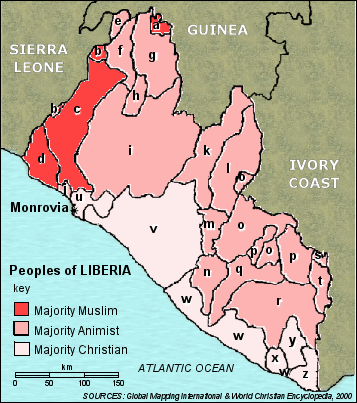 People, Population
People, Population
a. Manya: 54,000
b. Mende: 23,000
c. Gola: 118,000
d. Val: 106,000
e. Southern Kisi: 79,000
f. Bandi: 84,000
g. Loma: 168,000
h. Kuwaa: 15,000
i. Kpelle: 598,000
j. Dewoin: 10,000
k. Mano: 192,000
l. Dan: 104,000
m. Gbil: 7,000
n. Tajuasohn: 11,000
o. Western Krahn: 57,000
p. Eastern Krahn: 56,000
q. Sapo: 37,000
r. Gbeapo Grebo: 57,000
s. Gilo: 4,000
t. Glaro-Twabo: 5,000
u. Americo-Liberian: 77,000
v. Bassa: 412,000
w. Kru: 218,000
x. Barclayvile Grebo: 28,000
y. Globo Grebo: 32,000
z. Seaside Grebo: 36,000
At a remote runway, Clayton exited his bush plane next to a pile of 20,000 human skulls. Red ants emerged from beneath his feet. They had been feeding on human flesh. Near the pile a man stood nervously. Finally he confesses, "You know, we ate people during this war; not because we were hungry, but because we were scared, and to eat your enemy makes you strong." Blood stains the altar of a nearby church where young children were forced to scream, "There is no God," just before their throats were slit. A traumatized woman tells about soldiers at road blocks who after placing bets on the sex of unborn children would slice open the expectant mothers to see who'd won.
H I S T O R Y
Clayton's runway experience happened in 1992. Most of Liberia's ethnic groups migrated to this tropical region from other parts of Africa in the 1400s. In 1822 an American charity established Liberia as a colony of refuge for freed American slaves. In 1847 these settlers proclaimed independence, and Liberia became Africa's first sovereign nation. Immigrants from America dominated the democratic government until a coup in 1980. The new military government became corrupt and repressed the Mano and Dan tribes. In 1989 Charles Taylor started a rebellion which led to intertribal atrocities and his struggle for power against three enemies:
1.) forces supported by the Economic Community of West African States (ECWAS)
2.) the United Liberation Movement for Democracy in Liberia sponsored by Sierra Leone
3.) a remnant loyal to the ousted President Samuel Doe.
Charles Taylor emerged victorious in 1996, and he won rigged presidential elections in 1997, but the struggle for power and intertribal atrocities have continued.
P E O P L E S
Liberia's warring factions generally align themselves by ethnicity. Nearly 20 different ethnic groups speak over 30 different languages which can be grouped into three language families:
1.) Mande (47%), traced to the upper Nile region
2.) Kru (41%), traced to Northwest Africa
3.) West Atlantic (8%), native to this coast.
Immigrants from America comprise less than 4% of the population. Most of these live in Monrovia and in other cities along the coast. The Kpelle, Mano, Loma, Vai, Bandi, and Mandingo are major Mande tribes. The Bassa, Grebo, Kru, and Krahn are the major Kru tribes. The Kissi and Gola are the main West Atlantic tribes. Over one million of Liberia's 3.2 million people live in the capital, Monrovia, and half of these are refugees, many of whom are from Sierra Leone. Around 700,000 Liberians live as refugees in other countries.
R E L I G I O N S
Religious diversity complements Liberia's ethnic diversity. Tribal religions known collectively as Animism are prominent throughout nearly all of the tribes. These hold primary allegiance for 43% of the population.
In Animism, supernatural elements in a spirit world "animate" all of the forces, objects, and cause and effects that we experience in the natural world. Practitioners seek safety, power, and blessing by appeasing or manipulating a supernatural system that they perceive undergirds physical reality. Features of animism include: witch doctors (shaman), charms, magic potions, spells, ritual dances, divination, fortune telling, necromancy, ancestor veneration, secret societies, superstitions, taboos, animal sacrifices, and sometimes even cannibalism. The Loma have a secret society called Poro for men and one called Sande for women.
Islam grips 16% of Liberians and predominates in the northwest. Missionaries of the Ahmadiya sect have been coming from Egypt and Pakistan.
Christianity claims 40% and thrives more along the coast than in the interior. Nearly half of Liberia's professing Christians belong to churches that are not affiliated with any denominations outside of Liberia. Also, nearly half the professing Christians are either Pentecostal, Charismatic, or Evangelical. Prominent internationally affiliated Christians in Liberia include Methodists, Lutherans, Baptists, Roman Catholics, and Anglicans.
M I N I S T R Y
Liberia's Constitution guarantees freedom of conscience, expression, and worship. It creates opportunity for all religions.
Bible Translation: Besides English, the whole Bible is available in only one other native Liberian language Mende, but only half of Liberians can speak English, and, for most of them, English is not their native language.The JESUS Film: Film showing teams move around freely. So far over 3 million people have seen this cinema version of the Gospel of Luke.
Christian Broadcasting: Christian radio programing airs on local stations in many Liberian languages.
Christian Education: Many churches and denominations run educational institutions. These include everything from primary and secondary schools to seminaries and nursing schools.
Relief and Development: Ravaged by over a decade of civil war, Liberia needs the kind of relief and development that will facilitate spiritual changes necessary for widespread forgiveness and reconciliation
| M I N I S T R Y C O N T A C T I N F O R M A T I O N | ||
| Agency | Type of Ministry | Contact Data |
| ACCTS | Facilitates Christian Military Fellowships |
www.ACCTS.org 1-303-985-8808 |
|
Assoc. of Baptists for World Evangelism (ABWE) |
Partners with Liberian Baptist churches. Sends medical workers and aid, school teachers, seminary professors, agri-business professionals, and Bible college teachers. |
www.ABWE.org 1-717-774-4400 |
|
Baptist Mid Missions (BMM) |
Sponsors Baptist churches, Bible institutes, day schools, and literacy programs. |
www.bmm.org/fields/Liberia.html 1-440-826-3930 |
|
Baptist International Missions Inc. (BIMI) |
Sponsors Baptist churches, building projects, and a Bible institute. |
www.ACCTS.org 1-423-344-5050 |
| Christian Aid Mission | Supports indigenous Christian ministries. |
www.ChristianAid.org 1-800-977-5650 |
|
Evangelical Lutheran Church in America (ELCA) |
Sends dentists, health care workers, medical doctors, medical technicians, nurses, nurse trainers, and pharmacists in its Global Health Ministries branch. |
www.elca.org/dgm/globalhealth 1-800-638-3522 |
|
Every Home for Christ (EHC) |
Presents the gospel from home to home and disciples new believers in cooperation with local evangelical churches. |
www.ehc.org 1-800-423-5054 |
|
Foursquare Missions International (FMI) |
Sponsors Foursquare churches. Funds scholarships for education of church leaders. |
http://fmi.foursquare.org 1-888-635-4234 |
|
Lutheran Church Missouri Synod (LCMS) |
Sponsors Lutheran churches, primary schools, theological education and leadership training, curriculum development, Bible translation, and literacy programs |
www.lcms.org 1-800-433-3954 |
| Samaritan's Purse | Partners with Liberian churches. Sponsors elementary education, counseling, vocational training, and evangelism. Facilitates refugee resettlement and rehabilitation. Sends medical supplies. |
www.samaritan.org 1-828-262-1980 |
| SIM International | Facilitates church planting, education, health care, relief and development, and multi-media development. |
www.ChristianMissions.net 1-800-521-6449 |
|
Southern Baptist Convention International Mission Board (SBC-IMB) |
Sponsors Baptist churches. Supports evangelists, agricultural projects, home industries, schools, and seminaries. Sends humanitarian aid. |
www.imb.org 1-800-999-3113 |
| WEC International | Sends evangelists and church planters |
www.wec-int.org 1-215-646-2322 |
| World Relief | Partners with the Association of Evangelicals of Liberia to provide food, water, sanitation, trauma counseling, and child protection in refugee resettlement programs. |
www.wr.org 1-443-451-1900 |
| Wycliffe International | Sends and supports Bible translators and literacy programs |
www.wycliffe.org 1-800-992-5433 |
FEEDBACK:
Response to Article on Spiritual Warfare
I was reading through your latest Operation Reveille Shofar and came to this line: Jericho's wall is a metaphor for human bondage. Its stones are ideas behind systems which paralyze people in ignorance, poverty, and fear
."
Allow me to give you Dick Eastman's perspective, which will also explain why we have called our new building "The Jericho Center."
- Jericho is a picture of God's people taking new territory through a supernaturally revealed strategy. (Joshua 5:14-15; 16:2)
- Jericho highlights the need for proper spiritual consecration as a way of life for those committed to taking our promised land of the unevangelized. (Joshua 5:2-4)
- Jericho speaks of the need to obtain our strategies directly from our Commander in Chief, the Lord Himself. (Joshua 5:13-15)
- Jericho reveals the dynamic and strategic nature of partnering and operating in unity (i.e., 12 distinct tribes) to accomplish a seemingly impossible objective. (Joshua 6:2-3)
- Jericho reveals the primacy of intercessory worship and faith in the promises of God (through His Word) to prepare the way for success as we seek to possess the land. (Joshua 6:6-8, 10; New Living Translation)
- Jericho speaks of the miraculous intervention of the Lord who alone can bring down all walls of opposition. (Joshua 5:13-14, 20)
- Jericho pictures the need for God's people to act responsibly (i.e., "take the city") when God does intervene miraculously. (Joshua 6:20-21)
Carol Anderson
Volunteer Network Director, Every Home For Christ
